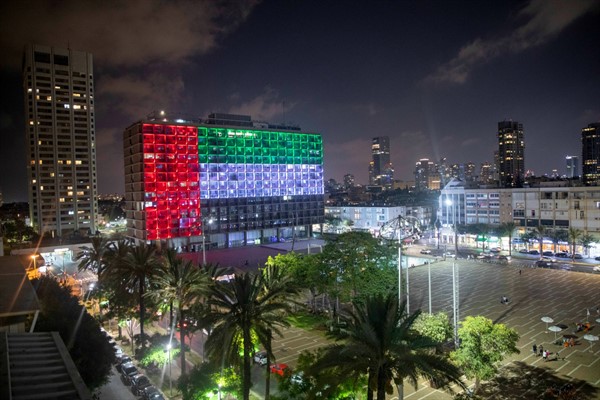The landmark agreement between Israel and the United Arab Emirates that was announced unexpectedly last week, a prelude to normalized diplomatic relations, is by any measure a triumph for Prime Minister Benjamin Netanyahu. But in the tumultuous, fractious landscape of Israeli politics, Netanyahu’s celebrations have been tempered by bitter recriminations at home, a reminder that in Israel, no win comes without wounds.
In the deal, first made public by U.S. President Donald Trump, the United Arab Emirates agreed to establish full diplomatic ties with Israel in exchange for Israel’s suspension of plans to annex parts of the West Bank. The UAE’s move goes a long way in dismantling the fiction of a united Arab front against Israel, one that started crumbling years ago, despite vows by Arab leaders not to make peace with Israel until the establishment of a Palestinian state. But the two-state solution has made no headway, while Arab countries, which have grown accustomed to the once-unacceptable existence of a Jewish state and Israel’s decades-long occupation of territories it captured during wars with its neighbors, have developed ever more elaborate, if secret, ties with Israel.
Now, the UAE-Israel relationship is out in the open. It’s a historic moment, and a huge stride in Israel’s longstanding aim to become a “normal” country in the Middle East, even as the conflict with Palestinians remains unresolved. It’s hard to view this as anything but a win for Israel—hard, but as it turns out, not impossible.

